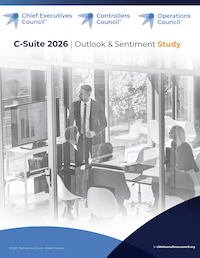It has never been more of a challenge for COOs to build high-performing teams than it is now. The post-pandemic business world continues to shake off the groundbreaking workplace-shifting paradigm of a remote workforce. Businesses have to provide record-breaking financial incentives to recruit employees. Just look at the 90-day bonuses handed out by quick-service restaurant chains just to retain workers for barely three months’ worth of work. COOs also have to deal with the phenomenon called The Great Resignation, while addressing the negative daily consequences of quiet quitting.
Trying to recruit and retain employees represents the most difficult goal to achieve for COOS. Turning newly hired employees into a high-performing team seems impossible given today’s workforce status.
However, developing a high-performing team can be a realistic goal for your organization if you follow a few time-tested tips.
How to Build a High-Performing Team
Building a high-performing team requires COOs to return to the basics of business management, which invariably starts by creating an effective and flexible employee recruitment strategy.
Recruit the Right Candidates
In the era of quiet quitting and The Great Resignation, recruiting employees has turned into a “Let’s go with whatever sticks to the wall” strategy. Companies across all sectors have become desperate enough for workers that they hire job candidates within the first few minutes of the first interview.
As a COO, you have to be selective when it comes to recruiting job candidates even during the greatest seller’s market in United States labor history.
Start by writing detailed job descriptions that not only describe the professional attributes of the best job candidates, but also describe the personal traits your company looks for to fit into your culture. Instead of using the shotgun approach to recruiting that includes holding job fairs and running constant job ads, try a much more targeted approach to recruiting by asking current high achievers on your team for referrals. Network with friends, family members, and yes, professional peers, to implement a targeted approach to employee recruitment.
Conduct at least two job interviews for qualified candidates, and make sure to invite different team members of your organization to sit in on each interview to provide you with a broader spectrum of assessments.
Retain the Best Employees
Recruiting the right job candidates is just the first step on the road to building a high-performing team. Now, you have to make it worth staying with your company for years to come.
Retaining the best employees is just as important as recruiting the best job candidates.
Many COOs consider “making it worth their while” to constitute creating an attractive compensation package that includes higher-than-average salaries, lucrative and timely bonuses, and perks such as health insurance and a company-sponsored retirement plan. Although financial incentives represent a successful way to retain the best talent, they should form the foundation of your company’s retention program.
The best employees want to learn something new every day, which means your job as a COO is to provide learning opportunities that employees seize instead of being forced to take. Upward mobility also is an important reason why the best talent stays with the same organizations for years. As long as a dedicated member of a high-performing team develops new professional skills that pay off in promotions, that employee should develop a degree of loyalty that is highly uncommon in today’s workforce.
Recognizing and empowering your high achievers also represent ways to retain the best talent.
Make Company Culture a Priority
With all the attention on artificial intelligence and its role in future business operations, deploying the human touch to build a high-performing has become a lost art. By promoting the right work culture, you can build a high-performance team that matches the goals set by the workplace culture. Seugnet van den Berg, who founded the South African IT and management firm Bizmond emphasizes the importance of company culture. “In the new world of work, companies with an attractive culture have a strategic advantage over companies without one,” she said.
Developing a company culture that encourages high performance is not a one-time activity, such as brainstorming culture-building ideas at a meeting. Instead, company culture requires the commitment to create values and promote those values on a regular basis.
The Bottom Line: Develop the Best Talent
Many factors play a role in defining a high-performance team, but at the core of a high-performing team are professional skills and knowledge. As a COO, you should assume the responsibility of ensuring your best employees receive opportunities to improve their professional skills and enrich their knowledge.
From ongoing group training sessions to targeted one-on-one professional development sessions, your organization can achieve greatness by building high-performing teams. Ongoing professional development programs also offer the best employees an opportunity to develop relationships with mentors within your organization.
Additional Talent Resources
What COOs Are Getting Wrong About the Future of Work – and How to Make It Right
Improving Businesses Processes for Increased Efficiency



0 Comments